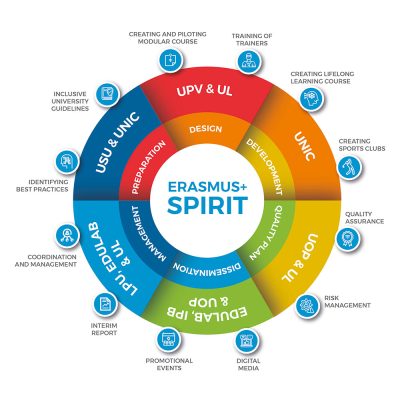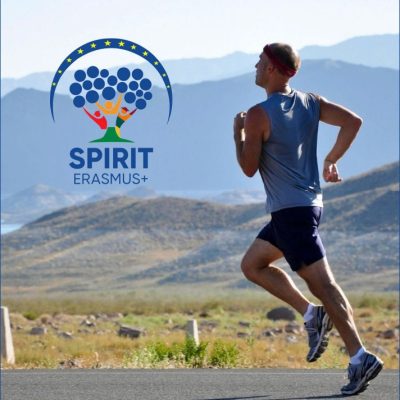


This initiative is part of the ERASMUS+ program, titled “Sport and Physical Education as a Vehicle for Inclusion and Recognition in India, Indonesia, and Sri Lanka / SPIRIT.”
The project aims to tackle two significant issues in the three partner countries (Sri Lanka, India, and Indonesia):
- The rise of chronic noncommunicable diseases (NCDs), which has become a major global health concern in low- and middle-income countries. This increase is particularly evident in Southeast Asia, where resources to combat this epidemic are limited.
- Globally, young people need time, space, and companionship to enjoy sports and play. Although the need for sports activities is universal, the ability to participate is often restricted.
Sports can help break down barriers and promote inclusion among students at various educational levels (higher, vocational, secondary, and primary) who are often marginalized. Participation in sports benefits these excluded individuals in two ways:
- By changing community perceptions of different groups’ capabilities: Through sports, participants—regardless of gender, ability, or background—can come together positively, often for the first time, to achieve what they previously thought impossible. This helps reduce stigma and discrimination and alters the attitudes of those who control access to physical activities.
- By changing participants’ perceptions of themselves and their abilities: Sports empower individuals to realize their potential and advocate for societal changes that enable them to fully utilize that potential.
The project seeks to develop an interdisciplinary curriculum on sport management, sport nutrition, and physical education, along with offering short courses for professional coaches, trainers, sports clubs, and organizations interested in using sports and physical education for inclusion. Additionally, SPIRIT student clubs will be established to promote SPIRIT activities in schools and local communities. The main goal of SPIRIT is to create a modular program in Sports, Physical Education, and Health Sciences in three Asian countries, emphasizing the importance of sports and physical activity beyond competition, as a tool for promoting healthy lifestyles and socioeconomic development, with a special focus on vulnerable groups, women, and students with special needs.
Pengunjung
- Total visitors:692580
- Visitors today:288
- Visitors last week:2381
- Visitors per month:1138
- Visitors per day:299
Kegiatan Departemen
ICNF
Summer Course
Link
Institut Pertanian Bogor
Kemenristek Dikti
Fakultas Ekologi Manusia
Departemen SKPM
Departemen IKK
Perpustakaan IPB
Repository IPB
Sistem Informasi Akademik IPB
Sistem Manajemen Kinerja IPB
Penerimaan Mahasiswa Baru IPB
Help Center IPB
Kinerja Dosen
Panduan Akademik IPB
MBKM
Simawa
Simbelmawa
PD-DIKTI
DIGISIGN
SIPPM


